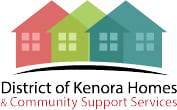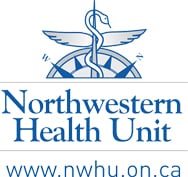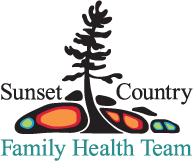PROJECT NAME: All Nations Health Partners – A New Model for Home Care Delivery
WORKING GROUP: Home & Community Support Services
EXECUTIVE SUMMARY:
As an OHT the ANHP have developed a HCCSWG to guide the redesign of home care services in the ANHP’s catchment area.
The purpose of this report is the second phase of preparing the ANHP OHT for their Business Case submission to Ontario Health North (OHN) for the transition of home care services to the ANHP OHT.
Expected levels of home and community support services currently provided by Home and Community Care Support Services North West (HCCSSNW) were calculated using age-standardized rates service utilization levels in the City of Thunder Bay as a benchmark; current levels of services in the ANHP catchment area were found to be much higher in the City of Thunder Bay than ANHP Communities.
This report demonstrates the ANHP population is significantly underserviced for home care services. While the calculations in this report are population-based, the ANHP OHT wishes to express the desire to move to a needs-based funding model for home care services. The population-focused modeling currently in use for the delivery of home care services does not properly account for the unique needs and challenges of ANHP communities, related to the social determinants of health, overall poor health outcomes and the geographical dispersion of the ANHP’s mostly rural and remote communities.
REPORT DATE: March 2022
PROJECT NAME: Digital Health Strategy 2021
WORKING GROUP: Digital Health
EXECUTIVE SUMMARY:
Digital health technologies can make the delivery of health care more accessible, convenient and cost-effective. Digital health systems use technology to share information, speed up access to services, broaden access points and improve communications between all stakeholders, including patients/clients. In many cases, it makes healthcare possible where it wasn’t before.
Three-year digital health milestones: partner digital collaboration and communication, patient intersections – between all healthcare partners and systems, empowering clients.
REPORT DATE: March 2021
PROJECT NAME: Primary Care Blueprint
WORKING GROUP: Primary Care
EXECUTIVE SUMMARY:
The All Nations Health Partner OHT (ANHP-OHT) has been established to address the area’s health care challenges, inequities and to ultimately meet the unique needs and goals of the ANHP defined geographic areas. These include improving health care services for everyone; being responsive to the needs of Indigenous communities; creating a seamless continuum of care across all healthcare providers; ensuring access to health services closer to home; delivering health outcomes that exceed Provincial standards; nurturing supportive environments for healthcare providers; and building an All Nations hospital and campus. To support these goals, advancing primary care was identified as a critical need.
To advance equitable access to primary care providers and services that are culturally appropriate for the residents of the All Nations Health Partner defined geographic area, the All Nations Health Partner OHT (ANHP-OHT) Primary Care Working Group (PCWG) identified the need for a Primary Care Service Delivery Blueprint to address health care gaps on and off reserve. The Blueprint serves as a guide and “sets the bar” for what primary care services will look like by establishing a single picture of primary care that everyone can work towards.
This Blueprint was informed by broad engagement that included over 185 stakeholders inclusive of the Primary Care Working Group, KCA WNHAC Elders & Youth, Seniors stakeholders, Shelter/Vulnerable stakeholders, Kenora Metis Council, Sioux Narrows & Nestor Falls stakeholders, Kenora Region stakeholders, Chiefs, Patient & Family stakeholders, Physicians, Nurse Practitioners, Home & Community, Interprofessional Stakeholders, Hospital, Long Term Care & Palliative Care, Home & Community Care, Public Health, and Indigenous Health Leads.
Key Learning: There is clear consensus that a collective approach to Primary Care is required across the ANHP defined area. This included:
- The need to support healthier communities, help people to live longer and ensure better quality of life;
- The need to “quilt” together models to create a region-specific primary care model focused on the continuity of care;
- The need for an equitable model for an on and off reserve primary care model where everyone gets the care and services they need; and
- The need to bring people together in a collaborative way to build trust and reduce territorialism.
This Blueprint provides a common starting point to guide future actions. Specifically, this includes:
- A collective vision for primary care grounded in the College of Family Physicians of Canada’s Patient’s Medical Home (PMH) Model. The vision respects the importance of traditional healing; focus on individuals and their family through every step of their life; and support the delivery of Quadruple Aim (e.g., improving health of the population, enhancing experience of care for individuals, reduce the per capita cost of health care, and attaining joy, pursuing equity, team well-being);
- 42 proposed priorities that identify the actions necessary to deliver on the ANHP Primary Care Vision; and
- A four-step Roadmap that identifies proposed next steps for the ANHP PCWG to consider as it plans to move forward.
REPORT DATE: March 2021
PROJECT NAME: Community Engagement Report on Home Care and Community Services
WORKING GROUP: Home & Community Support Services
EXECUTIVE SUMMARY:
The Home Care Community Services (HCCS) Working Group acknowledges all community engagement and research informing this HCCS Phase 1 Project has taken place within the original lands of Treaty 3, the Anishinaabe and the homeland of the Métis Nation. It is important to shed truth and place importance on the historical context that acknowledges the mistakes of the past. The Project team has dedicated this community-based approach to give voice to the people who will be served by the All Nations Health Partners Ontario Health Team (ANHP OHT) in a spirit of reconciliation and collaboration.
The following report presents a substantial community-driven engagement project to support the All Nations Health Partners (ANHP) in leading solutions that will best fit the unique needs of the region as home and community care functions transfer to the Ontario Health Teams (OHT).
The ANHP’s vision is to create a community-based framework for a people-centered approach that results in a fully integrated model of health care. With this vision in mind, the project summarized in this report focused on gathering insights from local expertise and community experiences. This information will direct an appropriate and evidence-based framework for a regionally specific, locally owned, culturally congruent, and responsive home and community care system.
Results and recommendations from Phase 1 will inform Phase 2 work aimed to develop and implement the design and delivery of effective Home and Community Care Services (HCCS) in compliance with Bill 175 as it applies to the ANHP unique circumstances. This process will be uniquely designed by, and for, the people living within the ANHP OHT catchment.
REPORT DATE: September 2020
PROJECT NAME: Gaps & Needs Assessment of Mental Health and Addictions Services in Kenora
WORKING GROUP: Mental Health & Addictions
EXECUTIVE SUMMARY:
This document outlines the urgent need to address issues at the intersection of mental health and addiction service delivery and health care in the City of Kenora, with a focus on methamphetamine use.
Kenora has recently seen a drastic increase in methamphetamine use and misuse by community members. Health professionals, emergency responders, police, local leadership, and workers in the justice system are voicing major concerns and are struggling in their respective fields to respond to the scale and intensity of the related issues. They are reporting gaps and needs pertaining to: supporting the health and safety of community members who struggle with mental health and addictions issues; addressing concerns about public safety; growing the current capacity of Kenora service delivery providers to respond and adapt to this rapidly shifting landscape; and working on longer-term systems change that connects to the roots of the issues.
This document provides an introductory overview of existing programs and services; identifies gaps in the community’s ability to respond; and outlines some potential opportunities to implement solutions to the current challenges. It presents some of the identified short and longer term actions for Kenora to strengthen mental health and addiction services in response to high rates of homelessness and methamphetamine use. The gaps, needs, and actions presented in this document have been identified through consultation with service providers and service recipients in the City of Kenora.
REPORT DATE: August 2019
PROJECT NAME: Supporting an Urgent Response in Kenora, ON
WORKING GROUP: Mental Health & Addictions
EXECUTIVE SUMMARY:
The City of Kenora is facing a crisis of inter-related methamphetamine addiction, mental health, and homelessness. Police, emergency services, and other front line services are overwhelmed in the absence of focused outreach, treatment, and housing services. Resources are urgently needed to support a response to the crisis and to develop a longer-term strategy for addiction and mental health supports.
The Kenora All Nations Health Partners (ANHP) are requesting resources from the Provincial and Federal governments to support the following immediate response measures and planning for longer-term solutions.
IMMEDIATE ACTIONS
- Enhance Outreach Services (Harm Reduction) and create a Rapid Access Addictions Medicine (RAAM) Clinic
- Establish a Community Paramedicine Program
- Reinstate the Four Directions Community Pathways Partnership
COORDINATION & PLANNING
- Develop a Community Mental Health and Addictions Service Coordinator position
- Initiate the planning process
REPORT DATE: August 2019




















